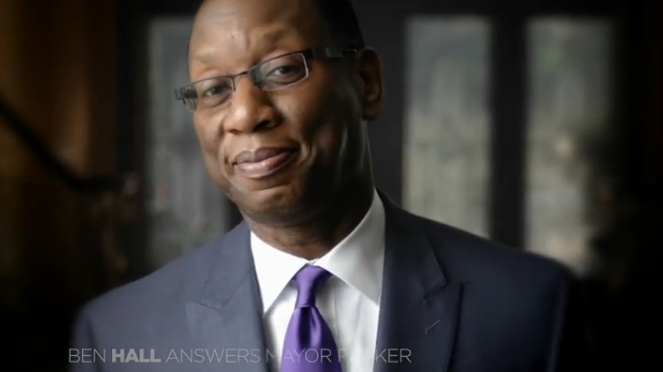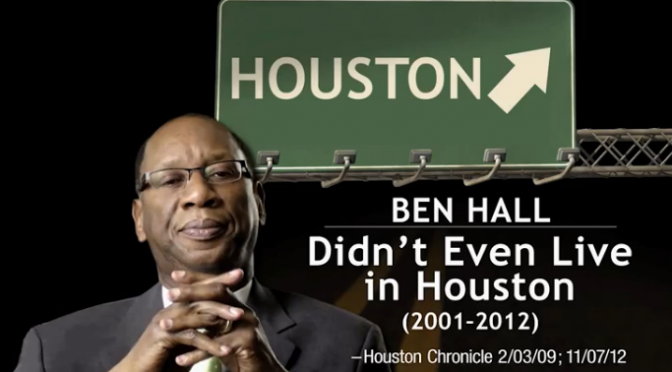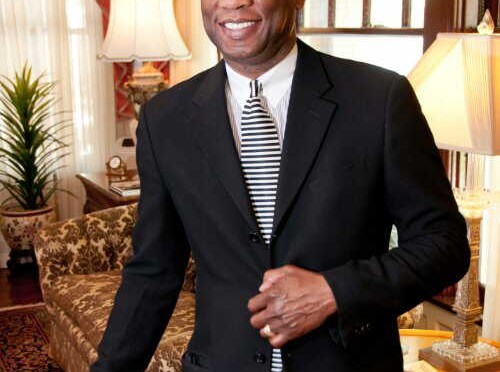I haven't been following every twist and turn of the Houston Mayor's race, but this latest revelation was simply too hard to resist.
In Mayoral candidate Ben Hall's latest TV ad, he reveals that his true opponent in the race isn't current incumbent Annise Parker, but perhaps it's any government authority … Continue Reading ››
Tag Archives: Ben Hall Houston
Ben Hall’s Biggest Problem? An Eroding Base
So far in his campaign for Houston's top job, candidate Ben Hall has had his ups and downs... most notably some issues with the wrong type of social media, timely payment of taxes, and a dispute over what exactly counts for residency. But it's quite possible that the biggest problem with Hall's Mayoral … Continue Reading ››
Ben Hall Launches First TV Ad
Well, it's an interesting way to introduce yourself to voters, I suppose. “I’m Ben Hall. A poor country boy who is surprised and fascinated by the gifts God has given me, because I clearly don’t deserve them. I finished college in three years because I thought … Continue Reading ››
Quantity: Hall Wants 6 Debates with Parker
This was just released by Houston Mayoral candidate Ben Hall, via his website and social media...
July 31, 2013
The Honorable Annise Parker Mayor of Houston 901 Bagby Street Houston, TX 77002
Dear Mayor Parker,
I am writing to propose that you and … Continue Reading ››
July 31, 2013
The Honorable Annise Parker Mayor of Houston 901 Bagby Street Houston, TX 77002
Dear Mayor Parker,
I am writing to propose that you and … Continue Reading ››
A Different Vision: Ben Hall
There's a substantive difference between gaining a first impression of someone on camera or in print, versus a face-to-face interaction. I think most would agree that the latter is always preferred. Even if it's a brief contact, you're just able to gather a world of information from someone when you see them with your eyes, … Continue Reading ››


